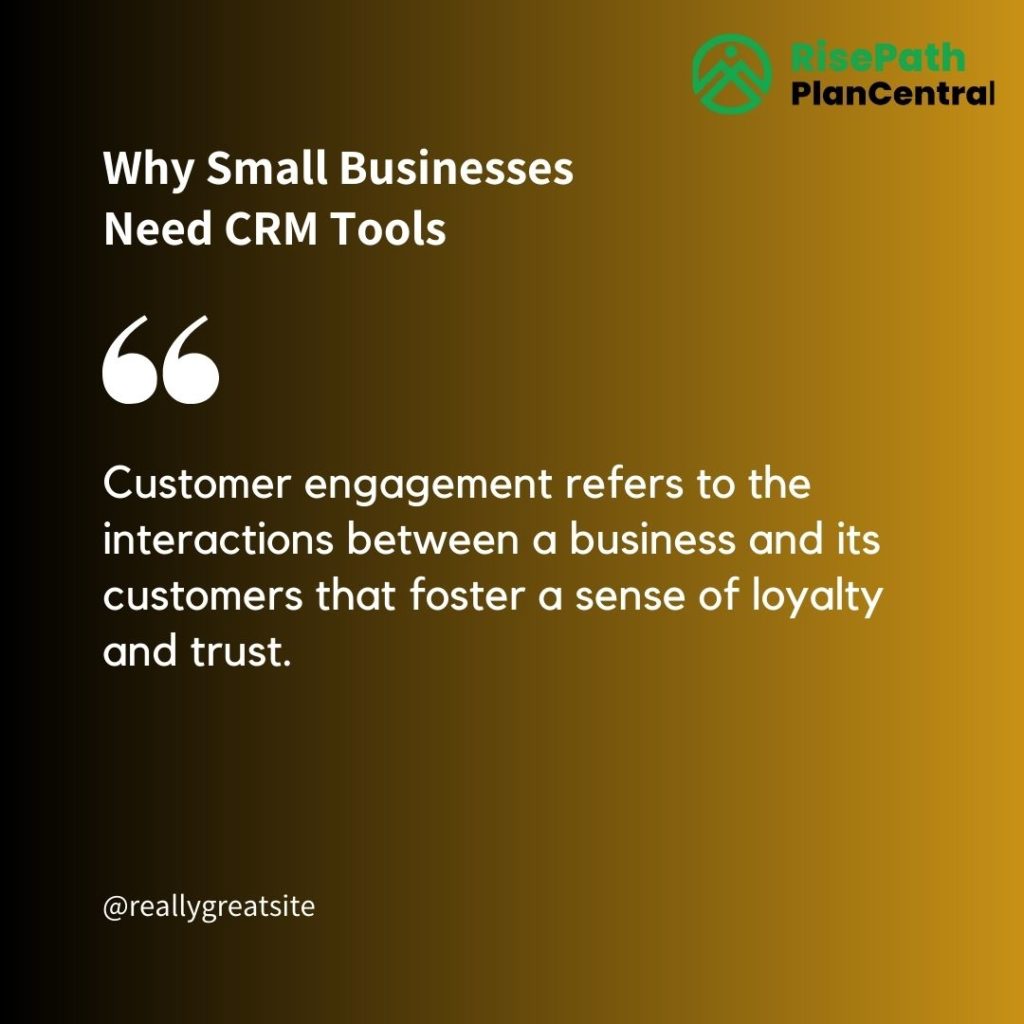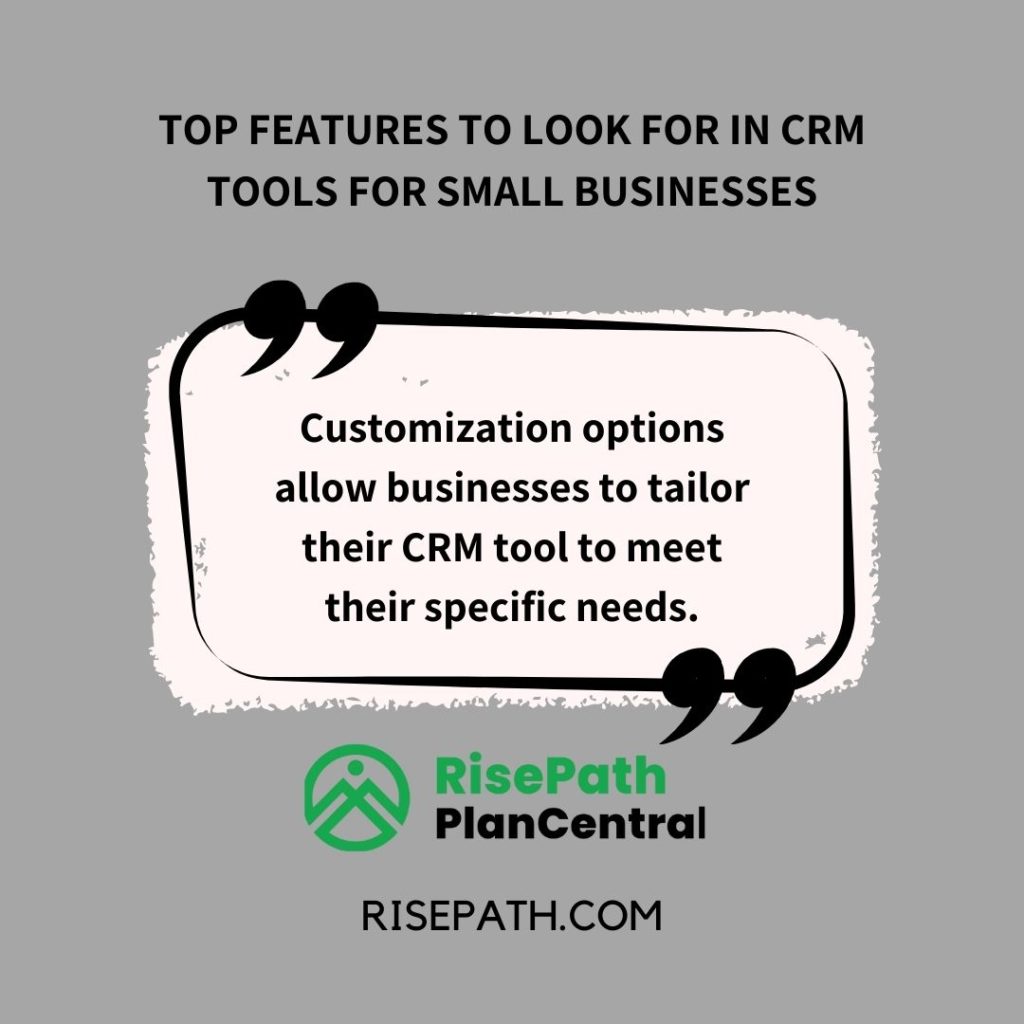Customer engagement refers to the interactions between a business and its customers that foster a sense of loyalty and trust. It involves building relationships with customers through personalized communication, exceptional service, and a focus on their needs and preferences. Customer Relationship Management (CRM) tools are software solutions that help businesses manage their interactions with customers, streamline communication, and improve customer engagement.
CRM tools play a crucial role in customer engagement by providing businesses with a centralized platform to store customer data, track interactions, and analyze customer behavior. This allows businesses to personalize their communication and tailor their offerings to meet the needs of individual customers. By using CRM tools, businesses can improve customer satisfaction, increase sales, and build long-term relationships with their customers.
Why Small Businesses Need CRM Tools for Customer Engagement
For small businesses, customer engagement is essential for building a loyal customer base and driving growth. However, without the right tools, it can be challenging to manage customer interactions effectively. Small businesses often have limited resources and may struggle to keep up with customer demands. CRM tools can help small businesses overcome these challenges by providing a centralized platform to manage customer interactions and improve engagement.

One of the biggest challenges small businesses face in customer engagement is managing customer data. Without a centralized system to store customer information, businesses may struggle to keep track of customer preferences, purchase history, and communication history. This can lead to inconsistent communication and missed opportunities to engage with customers. CRM tools provide businesses with a centralized platform to store customer data, making it easier to personalize communication and tailor offerings to meet the needs of individual customers.
Top Features to Look for in CRM Tools for Small Businesses
When choosing a CRM tool for your small business, there are several key features to look for. These include customization options, integration with other tools, a user-friendly interface, and analytics and reporting capabilities.
Customization options allow businesses to tailor their CRM tool to meet their specific needs. This includes the ability to customize fields, create custom reports, and set up workflows that reflect their unique business processes. Integration with other tools, such as email marketing software and social media platforms, can help businesses streamline communication and improve engagement.
A user-friendly interface is essential for ensuring that employees can quickly and easily navigate the CRM tool and access the information they need. Finally, analytics and reporting capabilities allow businesses to track customer behavior and measure the effectiveness of their engagement strategies.
How to Choose the Right CRM Tool for Your Small Business
Choosing the right CRM tool for your small business requires careful consideration of your business needs, budget, and scalability. Start by assessing your business needs and identifying the features that are most important to you. Research and compare different CRM tools to find one that meets your needs and fits within your budget. Consider the scalability of the tool and whether it can grow with your business as your needs change over time.

Best CRM Tools for Small Businesses: A Comparison
There are many CRM tools available on the market, each with its own unique features and pricing structure. Some of the top CRM tools for small businesses include HubSpot, Zoho CRM, Salesforce, and Insightly. When comparing CRM tools, it’s important to consider factors such as pricing, features, and user reviews. Look for a tool that meets your specific needs and has a track record of success with other small businesses.
Benefits of Using CRM Tools for Customer Engagement
Using CRM tools for customer engagement can provide a range of benefits for small businesses. Improved customer satisfaction and loyalty are among the most significant benefits, as businesses can personalize communication and tailor offerings to meet the needs of individual customers. Increased sales and revenue are also common benefits, as businesses can identify opportunities to upsell and cross-sell products and services. Finally, CRM tools can help businesses streamline communication and organization, reducing the time and resources required to manage customer interactions.
Tips for Maximizing Customer Engagement with CRM Tools
To maximize customer engagement with CRM tools, businesses should focus on personalizing communication, providing exceptional customer service, and utilizing data and analytics. Personalizing communication involves tailoring messages to meet the needs and preferences of individual customers. Providing exceptional customer service involves going above and beyond to meet customer needs and exceed their expectations. Utilizing data and analytics involves tracking customer behavior and using that information to improve engagement strategies over time.
Case Studies: Small Businesses That Have Successfully Used CRM Tools for Customer Engagement
There are many examples of small businesses that have seen success with CRM tools for customer engagement. For example, a small e-commerce business used HubSpot to personalize communication with customers and increase sales by 20%. Another small business used Zoho CRM to streamline communication and improve customer satisfaction, resulting in a 30% increase in repeat business. These businesses were able to achieve success by leveraging the features of their CRM tools and tailoring their engagement strategies to meet the needs of their customers.
Common Challenges Small Businesses Face with CRM Tools and How to Overcome Them
While CRM tools can provide many benefits for small businesses, they can also present challenges. Common challenges include implementation and adoption challenges, data management and organization, and training and support. To overcome these challenges, businesses should invest in proper training and support for employees, establish clear processes for data management and organization, and work with a vendor that provides ongoing support and guidance.
Future Trends in CRM Tools for Small Businesses and Customer Engagement
The future of CRM tools for small businesses is focused on artificial intelligence and automation, integration with social media and messaging platforms, and an increased focus on customer experience. AI and automation can help businesses streamline communication and improve engagement by automating repetitive tasks and providing personalized recommendations. Integration with social media and messaging platforms can help businesses reach customers where they are and provide a seamless experience across channels. Finally, an increased focus on customer experience involves prioritizing the needs and preferences of individual customers and tailoring engagement strategies accordingly.
RisePath CRM: The Ideal CRM Solution:
- Amidst a sea of CRM tools available in the market, RisePath CRM stands out as a comprehensive and powerful solution. Here are some reasons why RisePath CRM is considered the best tool for CRM:
- User-Friendly Interface: RisePath CRM boasts an intuitive and user-friendly interface, making it easy for businesses to onboard their teams and adapt to the system quickly. Its clean and organized layout ensures a seamless user experience, allowing users to navigate effortlessly through various features and functionalities.
- Customizable and Scalable: RisePath CRM offers extensive customization options, allowing businesses to tailor the tool to their specific requirements. From custom fields and workflows to personalized dashboards and reports, users can configure RisePath CRM to align with their unique business processes. Moreover, the tool is scalable and can accommodate the evolving needs of growing businesses.
- Integration Capabilities: RisePath CRM seamlessly integrates with other essential business applications, such as email marketing tools, customer support systems, and productivity suites. This integration ensures a smooth flow of data across different platforms, reducing manual efforts and enhancing efficiency.
- Advanced Sales and Marketing Features: RisePath CRM offers a wide range of features designed to empower sales and marketing teams. These include lead and opportunity management, sales forecasting, email campaigns, marketing automation, and analytics. With these tools at their disposal, businesses can optimize their sales and marketing efforts, drive revenue growth, and improve ROI.
- Robust Analytics and Reporting: RisePath CRM provides comprehensive analytics and reporting capabilities, enabling businesses to gain valuable insights into their customer data and sales performance. The tool offers pre-built reports and dashboards, as well as the flexibility to create custom reports. These insights help businesses identify trends, measure key performance indicators, and make informed decisions.
Conclusion
CRM tools are essential for small businesses looking to improve customer engagement and drive growth. By providing a centralized platform to manage customer interactions, businesses can personalize communication, improve customer satisfaction, and increase sales. When choosing a CRM tool, businesses should look for customization options, integration with other tools, a user-friendly interface, and analytics and reporting capabilities. By leveraging the features of their CRM tool and tailoring their engagement strategies to meet the needs of their customers, small businesses can achieve success and build long-term relationships with their customers.
Comments are closed, but trackbacks and pingbacks are open.